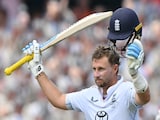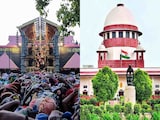Australia's two largest states reported sharp increases in new COVID-19 cases on Wednesday, a blow to hopes that lockdown orders would be lifted with more than half the country's population under stay-at-home orders.
New South Wales state, home to the country's most populous city Sydney, logged 110 new cases, up from 78 the day before, nearly four weeks into a lockdown of the city and surrounding areas to contain an outbreak of the virulent Delta variant.
Victoria state clocked 22 new cases, from nine the day before, its biggest increase since the outbreak began this month, even as it nears its second week of statewide lockdown.
"Had we not gone into the lockdown a few weeks ago, the 110 number today would undoubtedly have been thousands and thousands," said NSW Premier Gladys Berejiklian at a televised news conference.
"But we need to work harder and, of course, all of us need to be on guard," she added.
Health leaders have said their greatest concern is the number of people active in the community before receiving their coronavirus diagnosis, and that the number should be near zero before lifting lockdown.
Berejiklian said that number jumped to 43 on Wednesday, double the previous day, and that she could not say until the following week whether the city would exit lockdown by a July 30 target.
Victorian authorities, however, said 16 of its 22 new cases were in quarantine during their infectious period, while exposure sites for the remaining six were "reasonably low" due to lockdown restrictions.
A third state, South Australia, also went into its first full day of a weeklong lockdown on Wednesday, and reported one additional case.
'MORE PFIZER'
A year and a half into the pandemic, some 13 million Australians are under hard lockdown, raising pressure on the federal government which has seen its polling at its lowest in a year due to a sluggish immunisation program. Just over 11% of the population is fully vaccinated.
So far, the main vaccine in the government's arsenal, developed by AstraZeneca Plc, has been recommended for use only for people aged over 60 by the country's drug regulator due to a remote risk of blood clotting, while a vaccine made by Pfizer Inc has been restricted to over-40s due to limited supply.
"We have done as much as is humanly possible but the issue is we need more vaccines, we need more Pfizer," said NSW Health Minister Brad Hazzard at the news conference.
Prime Minister Scott Morrison, who has been criticised for saying last year that the vaccine rollout was "not a race", went on local radio to defend the program, but acknowledged it was about two months behind plan.
"I understand there is great frustration ... but this latest Delta variant has thrown a completely new curveball on this issue, which every single country in the world is wrestling with," Morrison told one radio station.
Still, Australia has fared better than many other developed economies in keeping COVID-19 numbers relatively low, with just over 32,100 cases and 915 deaths.
(Except for the headline, this story has not been edited by NDTV staff and is published from a syndicated feed.)















